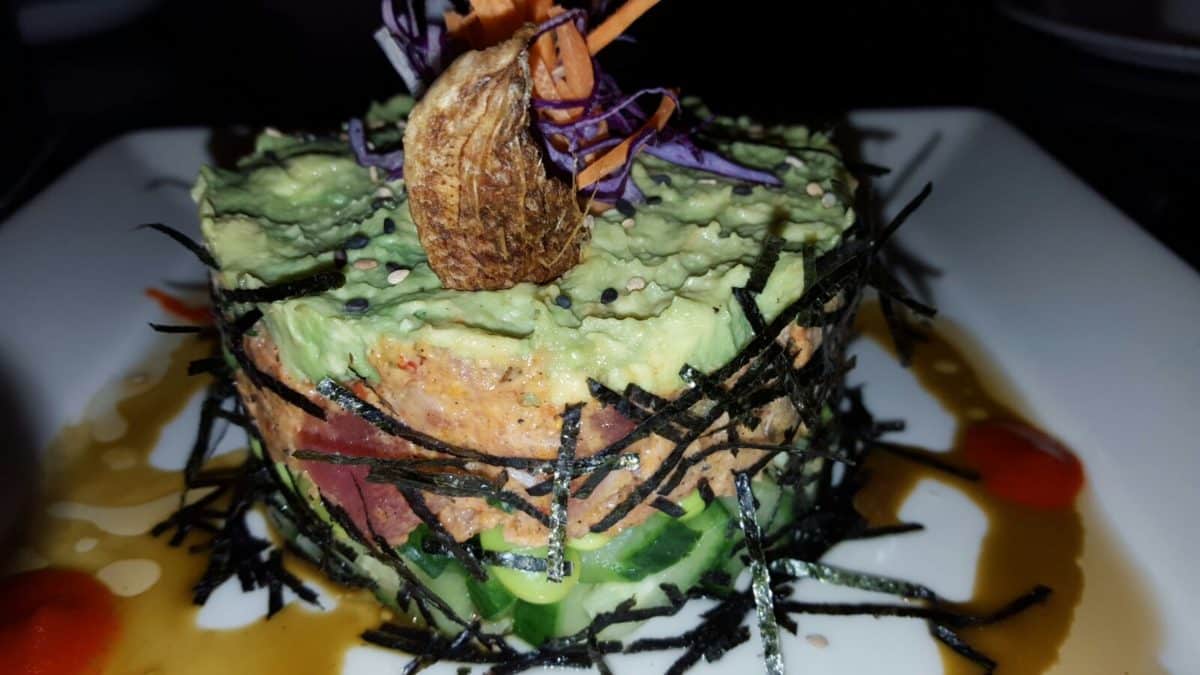Does your restaurant consider food allergies? Many restaurant owners, managers, and servers don’t take the dangers of food allergies seriously enough. In a 2017 CDC report, roughly 15 million people in the United States suffer from food allergy.
Does Your Restaurant Consider Food Allergies?
Additionally, an estimated 30,000 people end up paying a visit to the emergency room due to a food allergy, with 150 to 200 cases ending in a fatality. The troubling thing about this CDC report is that an estimated 50 percent of those deaths directly resulted from someone eating something they were allergic to at a restaurant.

Does Your Restaurant Consider Food Allergies? If Not, You Had Better
Furthermore, the CDC’s Environmental Health Specialists Network (EHS-Net) conducted a study of 277 restaurants throughout the United States and found that, out of that number, a mere 45 percent of restaurant managers, 41 percent of food workers, and 33 percent of servers ever received any food allergy training!
This means that nearly 70 percent of those people with whom you’ve trusted to keep your health and safety in mind don’t even know how to deal with peanut allergy reactions—at the very least.
If you’re one of those 15 million people suffering from a potentially life-threatening food allergy, that is some scary information to soak in.
One Out of 13 Children Have a Food Allergy
In a report published by the US Library of Medicine National Institute of Health, one out of 15 children suffers from a food allergy (or multiple food allergies in some cases).
And while this report stated that most restaurant managers, servers, and cooks generally have a good attitude toward those with food allergies, around 10 percent of those polled were under the assumption that customers with food allergies can consume a small portion of whatever allergen the customer is allergic to.

Does Your Restaurant Consider Food Allergies?
They are oblivious to allergy reactions that can cause death or that you can die from eating a peanut.
The report further pointed out eight foods responsible for around 90 percent of restaurant allergic attacks.
- Milk
- Eggs
- Fish
- Shellfish
- Wheat
- Tree nuts
- Peanuts Soybeans
Restaurant Owners Face Hefty Liability and Even Jail Time for Not Taking Food Allergies Serious Enough
Those restaurant owners or managers who don’t take food allergies severe enough could very well face hefty liability and even a jail sentence. Take Mohammed Zaman, an Indian restaurant owner from Easingwold, North Yorkshire, Britain, who courts said had a “cavalier attitude” concerning the safety of his patrons.
Zaman was thrown in the slammer for six years when Paul Wilson, 38, died from being fed curry containing peanuts. How did this happen? Zaman or his staff had a habit of swapping almond powder for the much cheaper groundnut mix containing peanuts—this was despite Wilson warning the server of his allergy.

Does Your Restaurant Consider Food Allergies?
As a result of Zaman’s cheapskate move, Wilson ended up dying from severe anaphylactic shock. Zaman will spend the next six years behind bars for a much-deserved manslaughter conviction.
And, frankly, every restaurant owner and manager should face the same fate if a customer’s special food request due to allergy is flagrantly ignored.
Does Your Restaurant Consider Food Allergies? The legal problems for restaurants don’t stop there, nonetheless.
In 2016, Panera Bread was sued by the parents of a five-year-old girl for negligence after serving peanut butter on a grilled cheese sandwich. As Whitney Filloon, the author of the article published on eater.com, wrote:
Who is the “heck” serves a grilled cheese and peanut butter sandwich, especially after the parents notified them that their little girl was allergic to peanuts?
The result: the girl was hospitalized due to a severe peanut allergy. The mother stated that she notified the staff at Panera on two different order “fields” (which means it was in writing, for goodness sake!) that the grilled cheese sandwich was for someone with a peanut allergy—two different times!
However, the moronic servers at Panera, a Fortune 1,000 company, failed to read the order correctly, didn’t even read it at all, or didn’t care to read it. One would think they are in good hands at such a large restaurant chain.
Does Your Restaurant Consider Food Allergies? Think again!
In May 2018, a famous chef, Chef José Andrés, became the center of media attention for all the wrong reasons when a Los Angeles business owner suffered an anaphylactic reaction after eating nuts in a tasting menu at The Bazaar by José Andrés restaurant in Miami.
The Bazaar is not only one of Miami’s most trendy eateries, but Andrés was a recipient of the 2018 James Beard Humanitarian award for his amazing charitable work and disaster relief efforts.
In addition, he is being sung as a hero for feeding furloughed U.S. government workers free of charge.

Does Your Restaurant Consider Food Allergies?
However, not only did Andrés’s staff ignore his dietary request to leave out the nuts due to a nut allergy, Jason Reid, 52 at the time, stated in an interview that they “didn’t seem to care” and treated him “like jerks.” Reid is seeking $15,000 plus legal fees from SBE Entertainment Holdings, owner of the SLS South Beach Hotel, where The Bazaar by José Andrés restaurant is located.
This article could go on and on about all the famous eateries, big chain restaurants, and mom-and-pop establishments that either almost killed someone or did kill someone because they ignored a simple-to-fulfill menu request.
But you should have gotten the message by now: 50 percent of restaurant managers, 41 percent of food workers, and a meager 33 percent of food servers have no clue about you or your loved one’s food allergy—or they don’t care.
Understanding the Difference Between Anaphylaxis and Anaphylactic Shock
Anaphylaxis is defined as the severe allergic reaction caused by ingesting a certain food that one is allergic to. The reaction is usually rapid in its onset and, in rare cases, results in the sufferer’s death. The symptoms of anaphylaxis include:
An itchy rash somewhere on the body shortness of breath Low blood pressure A feeling of lightheadedness Swelling of the tongue Vomiting

Does Your Restaurant Consider Food Allergies?
Anaphylactic shock results from anaphylaxis and occurs when the body’s blood pressure drops so low that the body’s cells and organs stop getting enough oxygen. Anytime your body stops getting enough oxygen, your life is in immediate danger.
Victims of anaphylaxis will most likely start noticing symptoms within 15 minutes of eating an allergen and usually begin mild at first—an uneasy feeling in your body, a runny nose, itchy skin, mouth, or throat.

Does Your Restaurant Consider Food Allergies?
If you have a food allergy and start feeling any of these symptoms after eating something at a restaurant, seek medical attention immediately! Adrenaline and epinephrine are most often administered and stop all known manifestations of anaphylaxis.
Any restaurant that cares about its customers should have a kit and at least one employee per shift trained in dealing with anaphylaxis and anaphylactic shock.
For those who can afford it or whose insurance covers it, you should look into purchasing an anaphylaxis kit just in case of an emergency.
Read more – Five Foods That Will Kill You.








